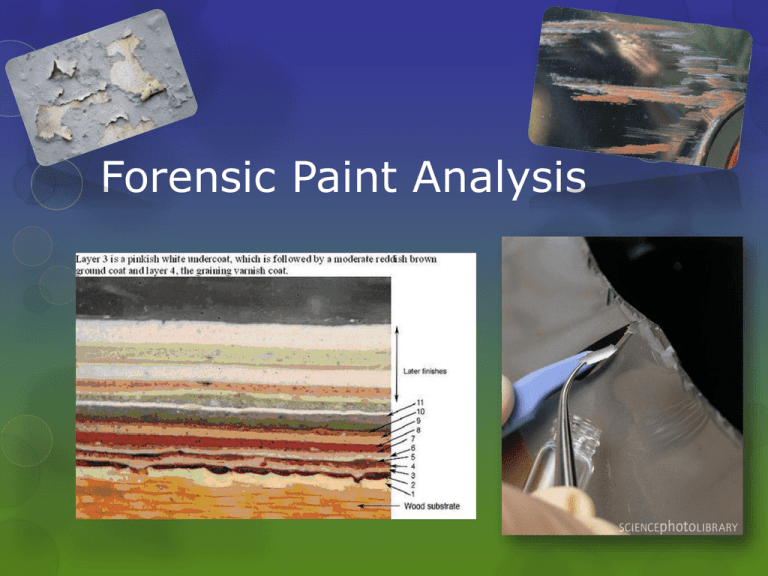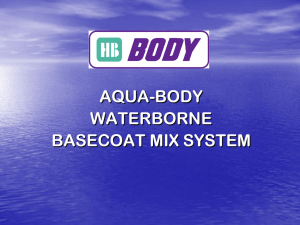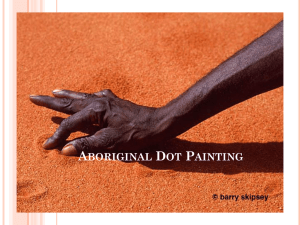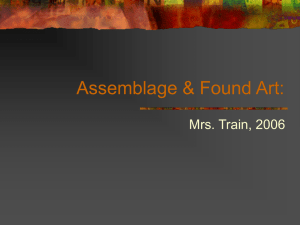Forensic Paint Analysis
advertisement

Forensic Paint Analysis How can paint tell a story?? Able to associate an individual or vehicle with a crime scene Hit and Run cases—dried paint/paint smears transfers to clothing or vehicle upon impact Burglaries—paint can be transferred onto tools used to break into things Can identify color, year, make, model of a car by paint recovered at an accident The vehicle involved in a hit-and-run of a bicyclist who later died left white paint chips at the scene. Composition Paint is composed of a binder, pigments, and different additives Most paint is applied in layers Paint Layers on Vehicles 1. Electrocoat primer—applied to steel body of car, provides corrosion resistance, pigmented gray-black 2. Primer Surfacer—smooths out and hides seams or imperfections (different pigments) 3. Basecoat—color coat; different additives add different effects (pearl luster, metallic look) 4. Clear coat—unpigmented layer, improves gloss, durability, and appearance How do we examine paint?? Microscope Compare questioned sample with control (known) sample side by side Determine type of paint, Look at surface texture, color, and color layer sequence Layers—each layer of recovered sample is compared with corresponding layer of the control sample Forensic scientist using a microscope to compare paint chips from a car involved in an accident with known samples of paint Picture of paint comparison from hit and run Malcolm Fairley “The Fox” 1970s British Serial rapist Detectives found yellow paint specks on a tree at one of the crime scenes Paint analyzed—comes from a Austin Allegro car Narrowed suspects—detective drove up at Malcolm’s house, found him cleaning a yellow Allegro Examined car—found scratches on paint that matched paint flakes to the crime scene Using this and other pieces of evidence, Malcolm was tried, convicted and sentence to 6 life sentences for rape, assault, and burglary Gary Ridgeway “Green River Killer” 1970s and 80s—truck painter who killed in Seattle area Killed between 50-90 women and dumped in Green River Gary was suspected but never arrested Killing stop and case goes cold 2001—case is reanalyzed; paint on victims clothing matched to highly specialized paint used at Kenworth truck plant where Gary worked 2002—using paint analysis as well as DNA analysis Gary is found convicted of 48 counts of murder and was sentenced to 48 life sentences











